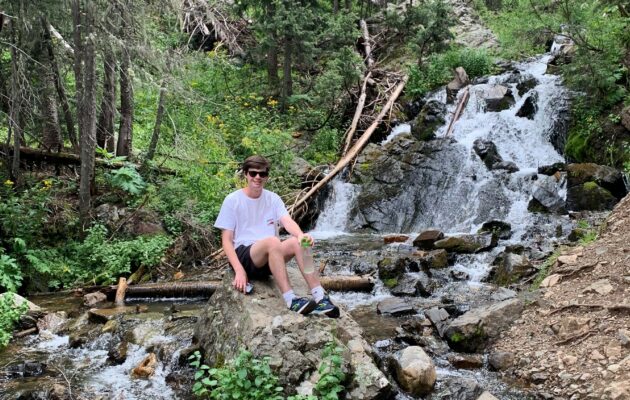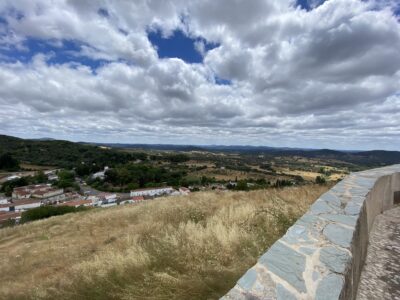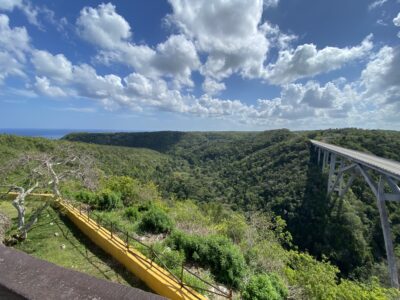
We’re asking students, recent grads, teachers, and counselors five questions on how languages play a role in shaping personal and professional success…
Meet Weston—a rising sophomore Spanish major at Denison University.
1. When did you begin learning Spanish in school and what sparked your interest in continuing the language?
I have been learning Spanish since elementary school. I started in kindergarten when each week my class went to the Spanish teacher’s room for an hour or so. I remember only learning just the basics, such as the shapes and colors. Growing up, my family had a housekeeper that spoke Spanish and I remember her teaching me the word azul because my favorite color was—and still is—blue. I remember it sounding funny and repeating it over and over again.
In high school, since I had been semi-learning Spanish for years, I decided to make it a goal in my life to become fluent.
Numerous Spanish teachers and professors have really inspired me and pushed me to where I am today.
2. In high school you participated in two study abroad experiences! Could you briefly describe them and share your biggest takeaway from each?

I attended Woodberry Forest School, an all-boys boarding school in Virginia, starting my sophomore year of high school. In the summer before my senior year, a group of 16 students and three teachers went to Sevilla, Spain, for around six weeks. Everyone stayed in a different home stay, forcing us to practice our Spanish skills. Our teachers taught some classes, and we also went on different day trips all around Andalucía.
One of my favorite memories was touring a jamón iberico factory in the Jabugo ham region in province of Huelva. I still keep in contact with my host family and hope to return one day to Sevilla to visit them.
During spring break of my senior year, I went with a different group of students, but with two of the same teachers, to Cuba for a week. We spent most of the time in Havana with a couple days at the beach in Varadero. It was interesting to compare the architecture in Havana to what I had seen in Spain in cities like Cádiz.
I loved both of my study abroad experiences and hope to return to both Spain and Cuba in the future.
3. We’d love to hear more about some of the language or cultural activities/clubs you participate in at Denison—tell us about a favorite or recent event!
At Denison I have the pleasure of serving as the Treasurer of the Spanish Club. Recently, we held a sculpture workshop on campus with a member of the Studio Art Faculty, Micaela Vivero, instructing the club on creating masks out of plaster. The inspiration for the workshop was the Latin American tradition of making devil masks for Diablada parades and festivals.
The event was a success and we hope to hold more events celebrating different cultures from across the Spanish speaking world.
4. You’ve mentioned that the support of engaging language educators has helped motivate you over the years: What makes an amazing language teacher?

An amazing language teacher is
someone that loves the language they are teaching and are passionate
about sharing the culture with their students.
The language teacher that
really propelled me to where I am today was my high school Spanish
teacher, Drew Collier. He ignited my passion for language learning and
did so by having a fun and engaging class. He would come up with random
things. For example, one of our vocabulary lists was entitled Arbols y Armas.
He also was a Spain fanatic and introduced me to the vosotros verb form. I loved how he explained it: “Vosotros
is just like y’all in English.” I love that and continue to think of vosotros
as y’all. Being from Texas I thought it was so fun to be able to say
“y’all” in Spanish.
The best language educators are engaging and have a remarkable ability to make learning a new language fun.
5. What advice or message would you like to share with fellow language students?
Learning a new language is a marathon not a sprint. Don’t get discouraged after taking a few classes and feeling like you still don’t have a good grasp of the language. Learning a language takes time and your professors and teachers are there to help you succeed. Go to them for help and also practice speaking and engaging in the language whenever you can.
It takes a lot of time and hard work but being able to speak more than one language is very rewarding in the end. Don’t give up!
BONUS QUESTION
What’s next on your language journey—any immediate plans for this summer? And beyond?
This summer I have been selected to do a project as a Summer Scholar focused on the linguistic landscape of a couple predominantly Hispanic neighborhoods in Columbus, Ohio. An interest of mine is studying linguistics and I will be working with Dr. Mary Beaton, a member of the Spanish faculty and a linguist. I am excited to investigate both the bilingual and monolingual signage in the neighborhoods in order to compare the differences. I am hoping to be able to present my research at a conference next spring.
Later this summer, I am also planning to attend a 7-week intensive Portuguese program at Middlebury College in Vermont. They have a special program for Spanish speakers to be able to easily pick up a little Portuguese.
Check out our Connect with Spanish and Portuguese pages to explore language scholarships, university programs, testimonials, and more! And, as always, visit @LangConnectsFdn on social media to share your story with us.
